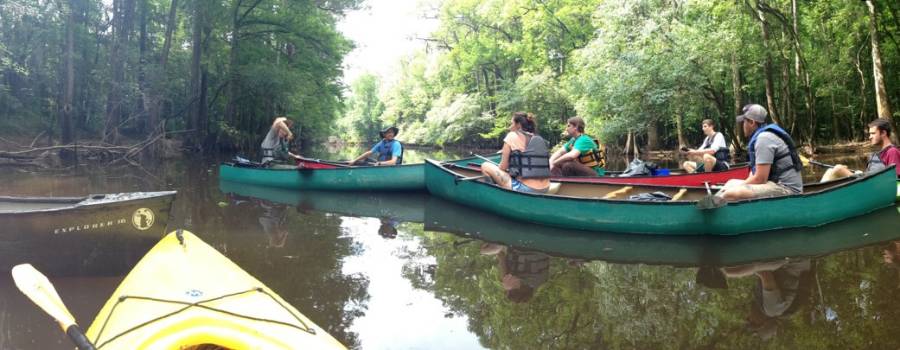B.A. versus B.S.
The SEOE offers two undergraduate degree programs in Environment and Sustainability. While both programs share similar core requirements, the Bachelor of Science (B.S.) degree program will receive a broad-based natural science curriculum, preparing those students for further study in natural and environmental research.
Students who are interested in the Bachelor of Arts (B.A.) degree places more emphasis on social and behavioral sciences for entry into social science-based graduate programs such as law school.
Coursework
The environmental studies degree emphasizes the social sciences and humanities, compared to the greater science and technology focus of the environmental science degree. Like two sides of the same coin, these interdisciplinary degree programs complement each other and examine similar environmental concerns through different approaches.
The B.S. in Environmental Science curriculum is designed to give students a strong scientific background while allowing them the flexibility to choose courses that address their specific interests. This interdisciplinary curriculum can include courses from environment, geology, biology, chemistry, marine science, mathematics, economics, political science, physics, engineering and environmental health science to create an individually tailored curriculum.
Environmental science majors may choose to specialize in climate systems, energy and infrastructure, natural systems, health and environment, water resources, or other specialties according to their individual interests.
Marine Science or Biology
Chemistry
Geology
Physics
Statistics
Calculus
Computer Science
Science and Policy I & II
Environmental Ethics
Surfaces Processes
Environmental Economics
Ecology and Evolution
Environmental Engineering
Weather and Climate
Environmental Health Sciences
Environmental issues Seminar
Water Conservationist
Environmental Planner
Land Managements Specialist
Health and Safety Manager
Energy Manager
Sustainability Consultant
Environmental Scientist
Department of Environmental Protection (DEP)
Environmental Protection Agency (EPA)
US Forest Service
National Parks Service
Federal Emergency Management Agency (FEMA)
Department of Natural Resources (DNR)
Army Corps of Engineers
Non-profit organizations
Manufacturing Corporations
Lobbyists
Energy companies
Waste Management
